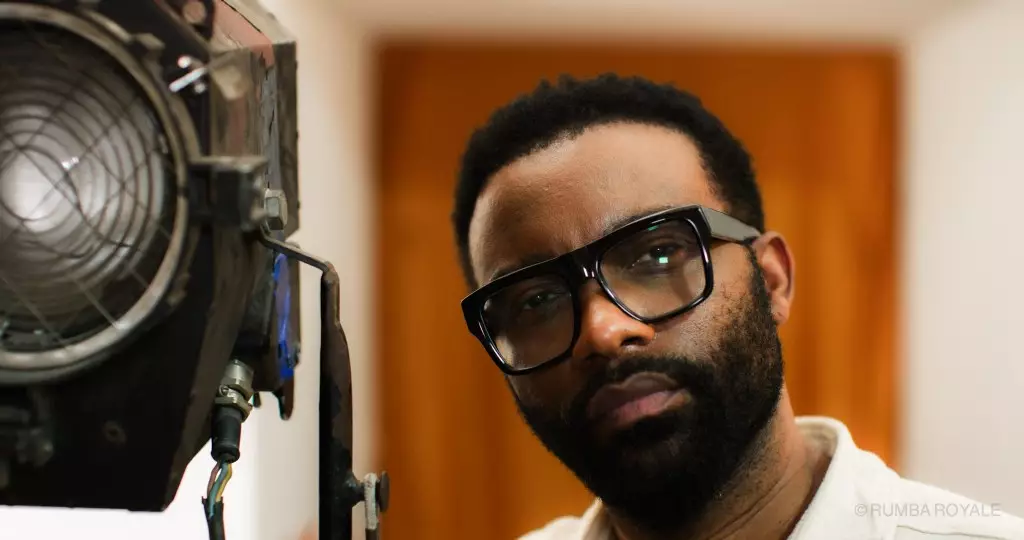The cinematic landscape of Africa has long been overshadowed by global giants, but the upcoming release of “Rumba Royale” is poised to shatter that glass ceiling. This historical thriller, featuring the Congolese sensation Fally Ipupa, promises not just entertainment but a cultural awakening. Scheduled for release on December 12, this film is not merely a debut for Ipupa but a landmark moment for the entire African film industry. It’s a rise of stories, narratives, and talents that have been historically underrepresented.
Fally Ipupa, often referred to as the “Prince of Rumba,” knows the weight of expectation that rests upon his shoulders. The film is not just another project; it exemplifies ambition, creativity, and the ability to resonate beyond local borders. The question that looms, however, is whether audiences will recognize and embrace this critical juncture in African storytelling.
Why Now? A Time for African Narratives
The historical context of “Rumba Royale” cannot be overstated, with its setting in the Democratic Republic of Congo during a tumultuous pre-independence era. This backdrop of political struggle intertwined with Congolese rumba music taps into the rich tapestry of African history that too often goes unexamined on a global scale. It’s not merely a story; it’s a reflection of a cultural identity that has stood the test of time, waiting for a platform to elevate its voice.
Directors Yohane Dean Lengol and Hamed Mobasser express their vision of “Rumba Royale” as a love letter to not just the Congo but to all African cinema. Their insistence on local stories that resonate universally is a call to arms for creators and audiences alike. It emphasizes that African narratives are rich and varied, capable of captivating viewers from any corner of the world.
The Role of Music as a Cultural Beacon
Music plays a central role in any culture, serving both as entertainment and as a historical document of sorts. The film’s incorporation of Congolese rumba is not just a stylistic choice; it enriches the narrative by imbuing it with an authentic essence that can transcend language barriers. Rumbling beats and soulful melodies transport the audience into the Congolese experience, enabling a connection with the characters that mere dialogue may fail to achieve.
In Ipupa’s words, this film is not about just presenting visual spectacles but about sharing an emotional journey. This adventure, laden with passion and talent, holds the promise to engage viewers in ways that few African films have been able to accomplish thus far. It elevates the conversation around African music, urging the world to pay attention to what has been overlooked for too long.
A Business Venture with Cultural Implications
In the corporate landscape, Pathé Touch Afrique’s aggressive strategy to secure pan-African rights for “Rumba Royale” marks a significant shift in the business dynamics of African cinema. By meticulously planning special screenings in Europe and the U.S., the company demonstrates a commitment to not only domestic audiences but also to the global market. It sheds light on the urgency for African creators to command a space on the world stage, creating pathways for diverse storytelling that resonates across cultures.
The new leadership under Sébastien Onomo, coupled with strategic investments, is crucial for growth and sustainability in the African film industry. These developments inspire a new generation of African filmmakers to put their stories front and center. Unlike the earlier models that focused solely on local narratives for local audiences, this new approach is daringly expansive.
Challenging Perceptions: A Bridge Between Two Worlds
The anticipation surrounding “Rumba Royale” offers an opportunity to challenge lingering misconceptions about African cinema. Often relegated to the sidelines, these films are labeled as niche, yet they possess the potential to captivate a global audience. The directors and producers stand behind a vision that posits African stories can—and should—compete on par with international productions.
This challenge not only requires a shift in audience perception but a responsibility from those within the industry to break barriers and present narratives that have historically remained bottled up. “Rumba Royale” stands as a testament to this resolve, an emblem of hope and expectation for what African cinema can achieve.
As “Rumba Royale” approaches its much-anticipated debut, the stakes are higher than ever. With the fusion of culture, music, and compelling storytelling, the film opens the door to a transformative era for African cinema.

